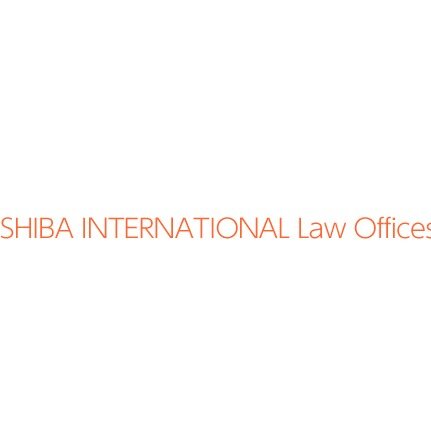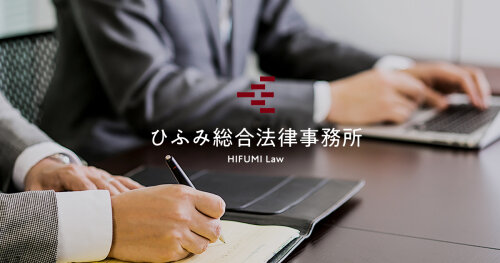Best Acquisition / Leveraged Finance Lawyers in Tokyo
Share your needs with us, get contacted by law firms.
Free. Takes 2 min.
List of the best lawyers in Tokyo, Japan
About Acquisition / Leveraged Finance Law in Tokyo, Japan
Acquisition and leveraged finance law is a specialized area of legal practice that supports the structuring, negotiation, and completion of financial arrangements used to acquire businesses or assets. In Tokyo, this practice is shaped by Japan's robust financial sector and its dynamic Mergers and Acquisitions (M&A) market. Acquisition finance involves raising capital to buy a company or asset, while leveraged finance refers to using significant amounts of borrowed money, often secured by the assets being acquired or the target company's cash flow. Legal professionals in Tokyo help clients navigate intricate regulatory requirements, commercial contracts, and cross-border considerations prevalent in these types of transactions.
Why You May Need a Lawyer
Seeking legal advice in acquisition or leveraged finance is important because these transactions are often complex and involve multiple stakeholders, regulatory hurdles, and high financial risk. Common situations where legal assistance is crucial include:
- Structuring acquisition or leveraged loan agreements for buying a company or major assets
- Negotiating term sheets and finance documents between lenders, sponsors, and borrowers
- Complying with Japanese and international financial regulations and disclosure obligations
- Conducting legal due diligence on target companies or assets
- Understanding tax implications related to the structure of the transaction
- Dealing with foreign exchange or cross-border elements if overseas parties are involved
- Managing disputes, defaults, or restructurings related to finance arrangements
A lawyer with experience in acquisition and leveraged finance can help mitigate risks, ensure compliance, draft and review documents, and safeguard your interests throughout the transaction.
Local Laws Overview
Acquisition and leveraged finance transactions in Tokyo operate within a legal framework shaped by Japanese law, regulations, and international market practice. Key aspects of the local legal landscape include:
- Financial Instruments and Exchange Act (FIEA): Regulates securities offerings, disclosure requirements, and market conduct.
- Banking Act: Imposes restrictions on who can provide lending and under what terms.
- Companies Act: Governs the procedures for mergers, acquisitions, share transfers, and corporate governance.
- Civil Code and Contract Law: Provides the principles underpinning loan agreements and security interests.
- Security Interests: Laws regarding the registration and enforcement of pledges, mortgages, and other security arrangements play a central role in leveraged finance.
- Foreign Exchange and Foreign Trade Act (FEFTA): Controls foreign investment and capital transactions, particularly relevant to cross-border deals.
- Tax Laws: Tax treatment of interest, arrangement fees, and cross-border payments needs careful consideration.
Complying with these laws is essential for the legality and enforceability of acquisition or leveraged finance transactions in Tokyo.
Frequently Asked Questions
What is acquisition finance?
Acquisition finance refers to the funding provided for the purpose of acquiring a company, business, or significant assets. It typically involves a combination of equity and debt, and often requires careful legal structuring to balance risk and return.
What does leveraged finance mean?
Leveraged finance involves using borrowed funds, such as loans or bonds, to finance the purchase of a company or asset. The leverage comes from using the acquired company’s assets or cash flows as collateral for the financing.
Who are the typical parties involved in these transactions in Tokyo?
Key parties include borrowers (such as companies or acquisition vehicles), lenders (commercial banks, private equity funds, or institutional investors), legal advisors, financial advisors, and sometimes regulatory authorities for approval or oversight.
Are foreign investors allowed to participate in acquisition finance in Japan?
Yes, foreign investors can participate, but there are regulatory requirements regulated by the Foreign Exchange and Foreign Trade Act. Filings or approvals may be needed depending on the nature and sector of the target company.
What types of security can lenders take in Japan?
Lenders commonly take security over shares, bank accounts, receivables, real estate, inventory, and intellectual property by way of pledges, mortgages, or assignment. The enforceability and ease of registration depend on the asset type.
What are the main legal risks in leveraged finance transactions?
Risks include inadequate due diligence, non-compliance with local laws, unenforceable security interests, misrepresentation, hidden liabilities, and changes in regulations affecting the transaction post-closure.
Is court involvement needed to enforce security?
Some security interests can be enforced through private sale or out-of-court methods if parties agree, but certain assets may require a court process or official procedures for foreclosure in Japan.
How long does a typical acquisition finance transaction take in Tokyo?
The duration depends on the complexity, but transactions generally require several months for negotiation, due diligence, regulatory filings, and completion. Cross-border deals or regulated sectors may take longer due to additional approvals.
Are there restrictions on repayment or prepayment of loans?
Yes, loan agreements may include prepayment penalties, or require notice and consent from lenders. Local financial regulations may also impose specific restrictions in some cases.
How can a lawyer assist with acquisition or leveraged finance in Tokyo?
A lawyer can draft and review contracts, ensure regulatory compliance, carry out legal due diligence, structure the transaction tax-efficiently, negotiate with counterparties, and assist with the registration or enforcement of security interests.
Additional Resources
If you need more information or support, consider reaching out to the following organizations and resources:
- Japan Fair Trade Commission (JFTC) - provides guidance on competition and merger regulations
- Financial Services Agency (FSA) - oversees financial institutions and regulatory compliance
- Tokyo Stock Exchange (TSE) - for matters involving public companies or listed securities
- Japan Federation of Bar Associations (JFBA) - offers lawyer referrals and information on legal services
- Large law firms with corporate finance and M&A practices in Tokyo
- Japan External Trade Organization (JETRO) - supports foreign investors and cross-border transactions
Next Steps
If you are considering or involved in an acquisition or leveraged finance transaction in Tokyo, it is advisable to take the following steps:
- Gather all relevant information about the intended transaction, including the parties, structure, and financing needs
- Consult with a lawyer experienced in acquisition or leveraged finance to understand your legal obligations and develop a transaction strategy
- Conduct a thorough due diligence process to identify risks and ensure compliance with applicable laws
- If the transaction is cross-border, coordinate with advisors familiar with both Japanese and international legal requirements
- Prepare all necessary documents, filings, and disclosures as required by Japanese law
Acting early and seeking professional advice will help you safeguard your interests and complete a successful transaction with minimal legal risks.
Lawzana helps you find the best lawyers and law firms in Tokyo through a curated and pre-screened list of qualified legal professionals. Our platform offers rankings and detailed profiles of attorneys and law firms, allowing you to compare based on practice areas, including Acquisition / Leveraged Finance, experience, and client feedback.
Each profile includes a description of the firm's areas of practice, client reviews, team members and partners, year of establishment, spoken languages, office locations, contact information, social media presence, and any published articles or resources. Most firms on our platform speak English and are experienced in both local and international legal matters.
Get a quote from top-rated law firms in Tokyo, Japan — quickly, securely, and without unnecessary hassle.
Disclaimer:
The information provided on this page is for general informational purposes only and does not constitute legal advice. While we strive to ensure the accuracy and relevance of the content, legal information may change over time, and interpretations of the law can vary. You should always consult with a qualified legal professional for advice specific to your situation.
We disclaim all liability for actions taken or not taken based on the content of this page. If you believe any information is incorrect or outdated, please contact us, and we will review and update it where appropriate.
















